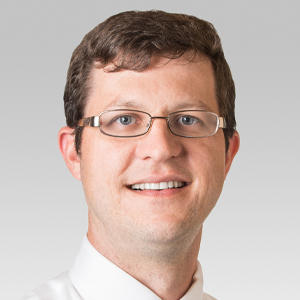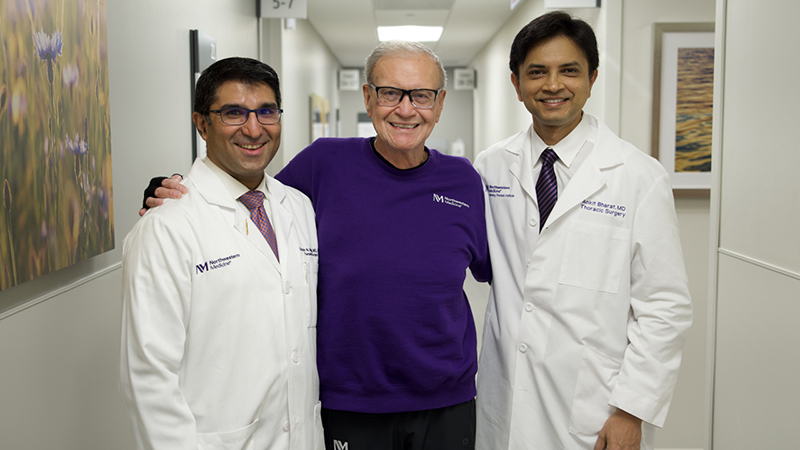Surviving Stage IV Lung Cancer
From Employee to Patient to Retiree
Updated October 2022
It all started when Paul Shoun suddenly couldn't walk.
Paul, who spent two-and-a-half decades at Northwestern Medicine as a paralegal, went to the Northwestern Memorial Hospital Emergency Department in June 2017. What started out as tripping had quickly worsened into an inability to use his right leg and foot. He could not have predicted what would happen next.
Facing Cancer
Paul is thankful for those initial mobility issues — they were signals for him to seek care — but he could have never predicted that what started as inexplicable tripping would lead to a serious diagnosis: stage IV lung cancer that had spread to his brain. He had brain surgery four days later and did not go home for a month.
"It was a gift it all happened so fast because I didn't have time to worry or think too much about it," says Paul.
Though Paul smoked years ago, any number of factors could have contributed to his diagnosis because anyone can get lung cancer. Lung cancer can go undiagnosed for a long time because its symptoms can be broad and attributed to other health issues, such as pneumonia. Additionally, lung cancers might not cause symptoms until they have spread.
Paul's neurological surgeon at Northwestern Memorial Hospital was Matthew C. Tate, MD, of Northwestern Medicine Lou and Jean Malnati Brain Tumor Institute of Robert H. Lurie Comprehensive Cancer Center of Northwestern University. After a 10-day stay at Northwestern Memorial Hospital, Paul was transferred to the Shirley Ryan AbilityLab to learn to walk again.
Pursuing Recovery
Paul's goal was to get back to his three-story building and walk up the 87 stairs to his home. Or as he puts it, "My goal was that I was walking out of the hospital."
He says his rehabilitation experience was humbling and taught him a lesson in gratitude. He gained great perspective and felt lucky – even with cancer.
"Many people with my diagnosis don't make it past 18 months," he says. "I'm still alive, and I live in gratitude for that."
Today, Paul still receives chemotherapy as part of regular care and treatment, and after taking on stage IV cancer, he is taking on a different stage of life: retirement.
Paul has retired from Northwestern Medicine, and he is looking forward to continuing singing with the Chicago Gay Men's Chorus, training to become a docent for the Chicago Architecture Center and traveling the world with friends.
"We're still keeping an eye on the cancer, but I'm doing well and have a great memory," Paul says. "I'm going to miss my colleagues here at Northwestern Medicine, but it's time to take on the next chapter of my life.






